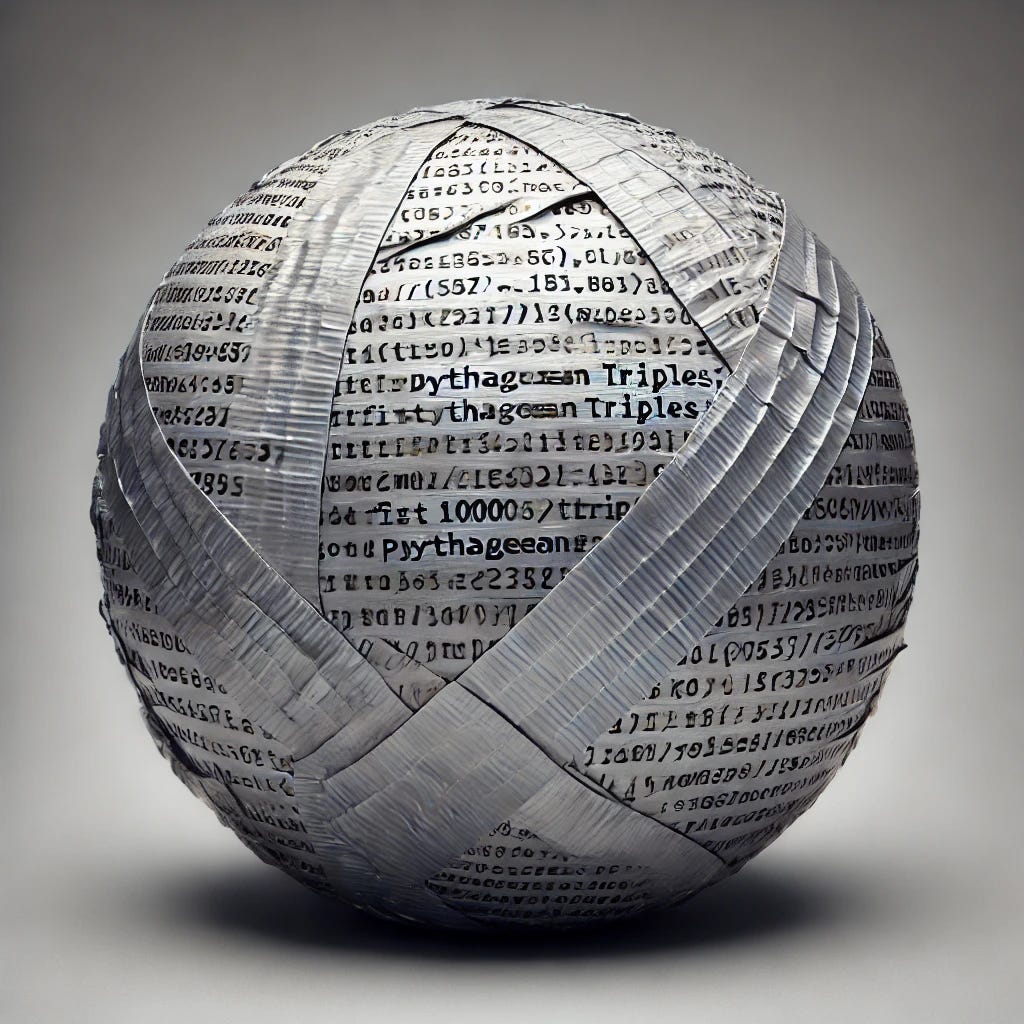Math Debt
The sibling of tech debt
Every once in a while, my partners (Jon and Matt) will casually throw out an expression that’s common in their world, but totally new to me…and yet very relevant to education. One of my favorites is tech debt. It refers to code that’s been duct-taped together. Maybe it was easy to write, and maybe it worked okay at first, but it’s going to fall apart if you ask it to do too much.
I’ll give you an example from my own code. In the early days of Mathchops, when we assumed only my students would ever use the tool, Jon would let me code some of the pages myself. One of these was the Recent History page. It showed the last 50 or so questions that had been answered by a student. I knew very little about databases or SQL queries, so I just queried every answer from every student every time the page loaded. It was easy for me to write the code this way at the time, and it worked fine…when I was the only ‘student’.
But once I had 30 students, each of whom was answering hundreds of questions, it started taking a really long time to load…until it got to the point that the page didn’t work at all. Without realizing it, I had accumulated tech debt, and eventually the required payments overwhelmed me: if I wanted the page to work, I was going to have to learn a lot more about our database’s tables and SQL queries.
That tech debt only affected one page, but a really bad error can take down a whole site. And that’s very similar to monetary debt. If I borrow $1000 at usurious rates (let’s say 40%), pretty soon I’ll owe the loan shark more for the loan’s interest than I do for the initial amount I borrowed. Even if I have $1000, I won’t be able to pay off the loan, and I definitely won’t be able to buy something new. The rest of my financial ‘machine’ may be running smoothly (taking in more money than I spend), but one excessive debt can destroy the whole machine.
The same thing can happen to math students. Let’s say Hank never learned his times tables – ask him 6 x 4 and he’ll reach for a calculator. Now he is trying to learn percentages. But he won’t be able to acquire this new concept with his normal level of attention. He will have difficulty simplifying fractions, and he won’t notice important relationships (for example, that 24/60 and 4/10 and 40/100 are all the same thing). And if he can’t see these relationships, percentages won’t make any sense. So instead of trying to understand percentages, he’ll spend his attention on procedures (“is means equals, of means multiply”). This is the equivalent of paying off interest – he may (or may not!) earn a respectable grade in the short term, but he isn’t paying off the debt (learning the times table), and he isn't any closer to acquiring new skills.
And, of course, this just gets worse as students move on to harder material. This is usually attributed to the difficulty of advanced material. But so often, a student struggles with a new concept because he never understood the old ones.
So should you avoid math debt at all costs? I actually think it’s okay to take on a little math debt, as long as the interest rate is reasonable and the project is worthy. But I’ll leave that for the next post.



I agree. It's because of "math debt" that it's essential first to fill in gaps when helping math students. As you eluded to, I'm sure the "math debt" is fine for some circumstances. As in, if a student doesn't memorize the decimal equivalent of 7/8, they will probably be fine. Or if a student doesn't know the 3-4-5 Pythagorean Triple, they can still solve these problems using other skills. Or learn how to use Algebra to prove that 0.111... is 1/9. But there is other mathematical knowledge that prevents students from proceeding.
A couple of essential skills include being able to formulate all the different ways that numbers add to 10, one-digit multiplication, and the related divisions. Many students use calculators instead of memorizing these facts, but, as you said, they won't be able to factor or simplify later, and often solving these problems will take so much time that the enjoyment of doing the problem is lost.
And many students struggle with subtraction with borrowing, but the idea of regrouping shows up in adding and subtracting mixed numbers, and conversions like changing between hours and minutes.
While it might seem easier to gloss over these as nonessentials - "Oh, we can use a calculator for this," or "I can just search up the answer." But then the skills don't get developed.
I remember a time when it was laughable that people couldn't figure out how to make change with a 10-dollar bill. But now, no one uses cash for payments and these skills seem unimportant.
But what about our students who want to go into engineering, medicine, or other precision or technical fields? It seems a shame that students might grow up thinking that they don't need this information, only to find out that their jobs (or dream jobs) depend on what they thought was unimportant.
And I think, as a society, we also benefit so much more from a "math literate" society in minute ways - from efficiencies, improvements, and numerical checks and balances - that maybe this "math debt" isn't just a debt collected by one person. It can potentially be a debt to our society as a whole.